Title : Characterization of porcine rotaviruses in the Czech Republic
Abstract:
Porcine rotaviruses A (RVA) are known for their complex epidemiology, pathogenicity and great genetic diversity. From a veterinary point of view, RVA represents one of the most important causes of acute diarrhoea of young animals. Apart from the first days of life, piglets are at great risk of RV infection during the weaning period. Detailed characterization of rotaviruses provides valuable information on the presence of new genetic variants that may escape vaccine-induced herd immunity, as observed in the case of the human RVA vaccines. Phylogenetic analyses of rotavirus genome also reveal repeated intersections between the evolution of human and animal rotavirus strains which is probably a consequence of multiple events of transmission among various animal species. The interspecies transmission and subsequent gene reassortment are important mechanisms driving the diversity of rotaviruses and enabling the emergence of new pathogenic strains. Due to more specific detection methods, porcine rotavirus C (RVC) is being reported in all parts of the world and is mostly associated with diarrhoea outbreaks in very young (< 3 days) or weaned piglets. Rotavirus B (RVB) is another enteric pathogen of pigs which is (unlike RVA and RVC) mostly detected in co-infection with other rotaviruses. Generally, RV mixed infections seem to be frequent and may be triggered by weaning.
An ongoing epidemiological study focused on the prevalence of rotaviruses in Czech pig farms shows that more than 70% of the screened samples were positive for at least one rotavirus species. In the category of piglets after weaning, a high rate of rotavirus co-infections was detected (almost 90% of positive samples). All RVA-positive samples are submitted to sequencing and G- and P-genotypes are determined. So far, the most common G-types are G9, G3, G5 and G11, combined with different P-types, mostly with P[13] and P[6]. Phylogenic analyses of the Czech poRVA show some inter-species similarities (especially with human RVA) and also close relatedness with wild-boar RVA strains.
Acknowledgements: This study was financially supported by the NaCeBiVet project of the Technological Agency of the Czech Republic (No. TN02000017) and by the Concept of Research, Development and Innovation of the Ministry of Agriculture (No. RO0523).



